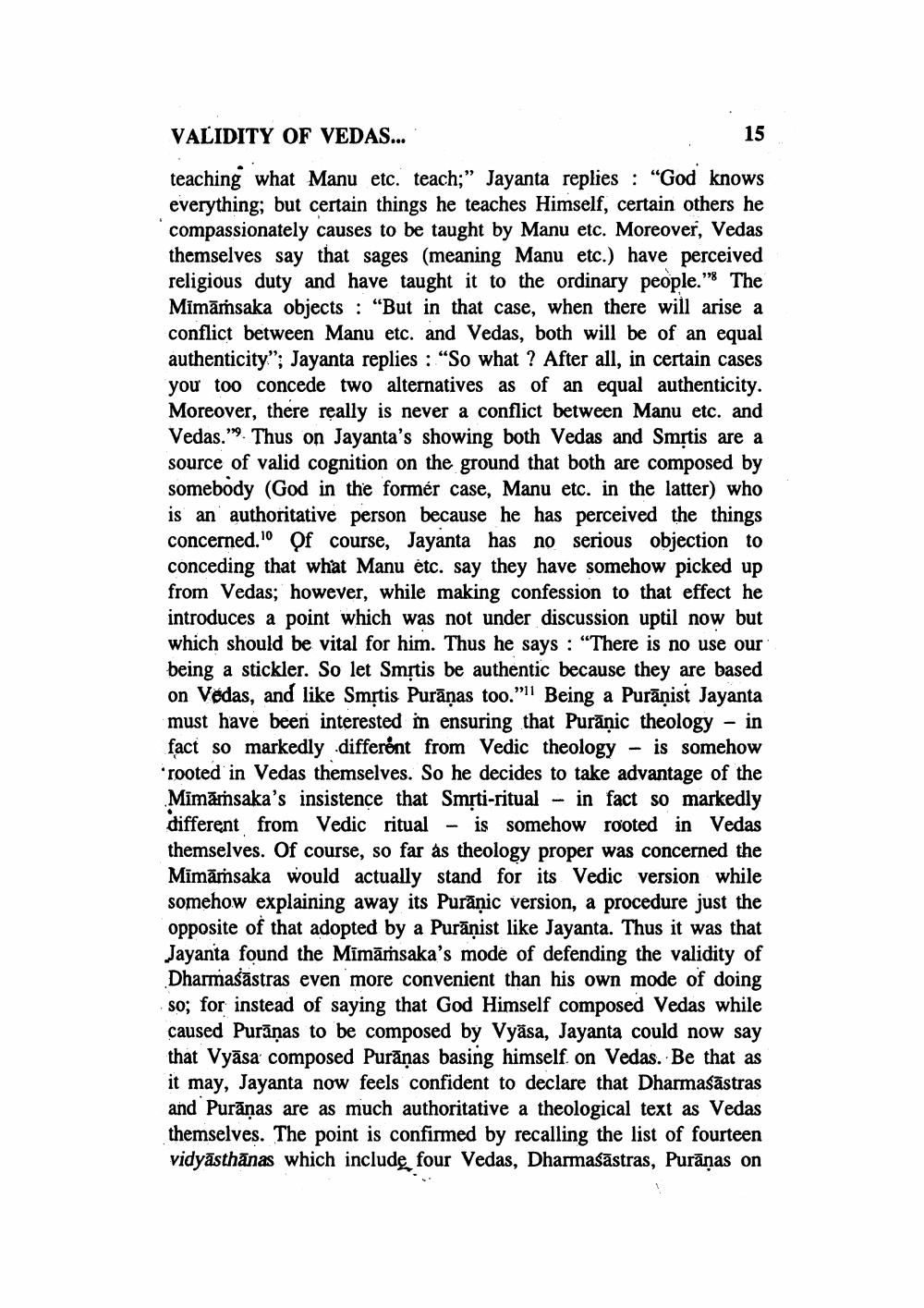________________
15
VALIDITY OF VEDAS...
teaching what Manu etc. teach;" Jayanta replies: "God knows everything; but certain things he teaches Himself, certain others he compassionately causes to be taught by Manu etc. Moreover, Vedas themselves say that sages (meaning Manu etc.) have perceived religious duty and have taught it to the ordinary people." The Mimämsaka objects: "But in that case, when there will arise a conflict between Manu etc. and Vedas, both will be of an equal authenticity"; Jayanta replies: "So what? After all, in certain cases you too concede two alternatives as of an equal authenticity. Moreover, there really is never a conflict between Manu etc. and Vedas."". Thus on Jayanta's showing both Vedas and Smṛtis are a source of valid cognition on the ground that both are composed by somebody (God in the former case, Manu etc. in the latter) who is an authoritative person because he has perceived the things concerned.10 Of course, Jayanta has no serious objection to conceding that what Manu etc. say they have somehow picked up from Vedas; however, while making confession to that effect he introduces a point which was not under discussion uptil now but which should be vital for him. Thus he says: "There is no use our being a stickler. So let Smrtis be authentic because they are based on Vedas, and like Smṛtis Purāṇas too." Being a Puranist Jayanta must have been interested in ensuring that Puranic theology fact so markedly different from Vedic theology is somehow 'rooted in Vedas themselves. So he decides to take advantage of the Mimamsaka's insistence that Smṛti-ritual- in fact so markedly different from Vedic ritual - is somehow rooted in Vedas themselves. Of course, so far as theology proper was concerned the Mimāmsaka would actually stand for its Vedic version while somehow explaining away its Puranic version, a procedure just the opposite of that adopted by a Puranist like Jayanta. Thus it was that Jayanta found the Mimämsaka's mode of defending the validity of Dharmasastras even more convenient than his own mode of doing so; for instead of saying that God Himself composed Vedas while caused Purānas to be composed by Vyasa, Jayanta could now say that Vyasa composed Purāņas basing himself on Vedas. Be that as it may, Jayanta now feels confident to declare that Dharmasastras and Puranas are as much authoritative a theological text as Vedas themselves. The point is confirmed by recalling the list of fourteen vidyasthānas which include four Vedas, Dharmasastras, Purāņas on
in




